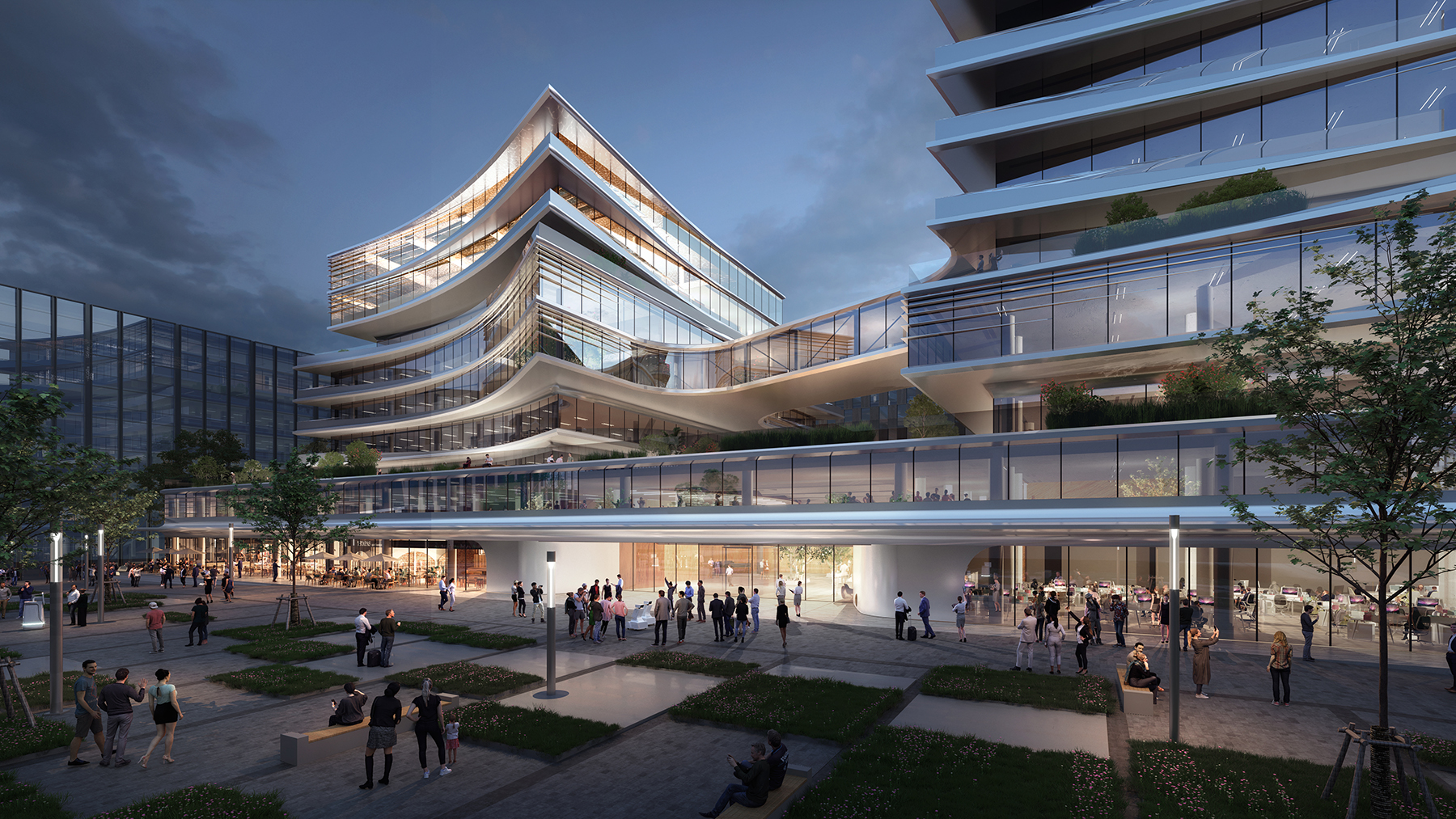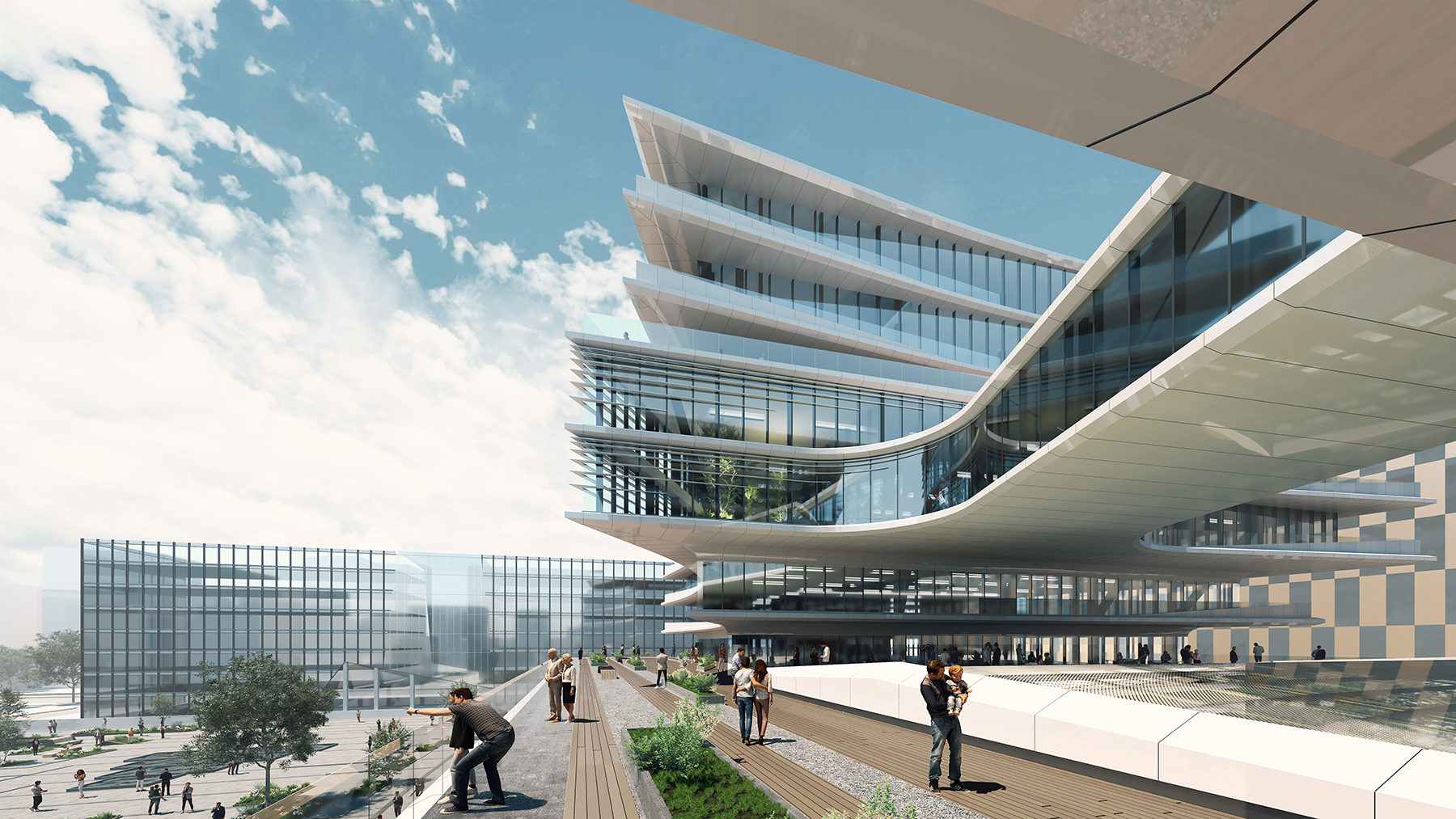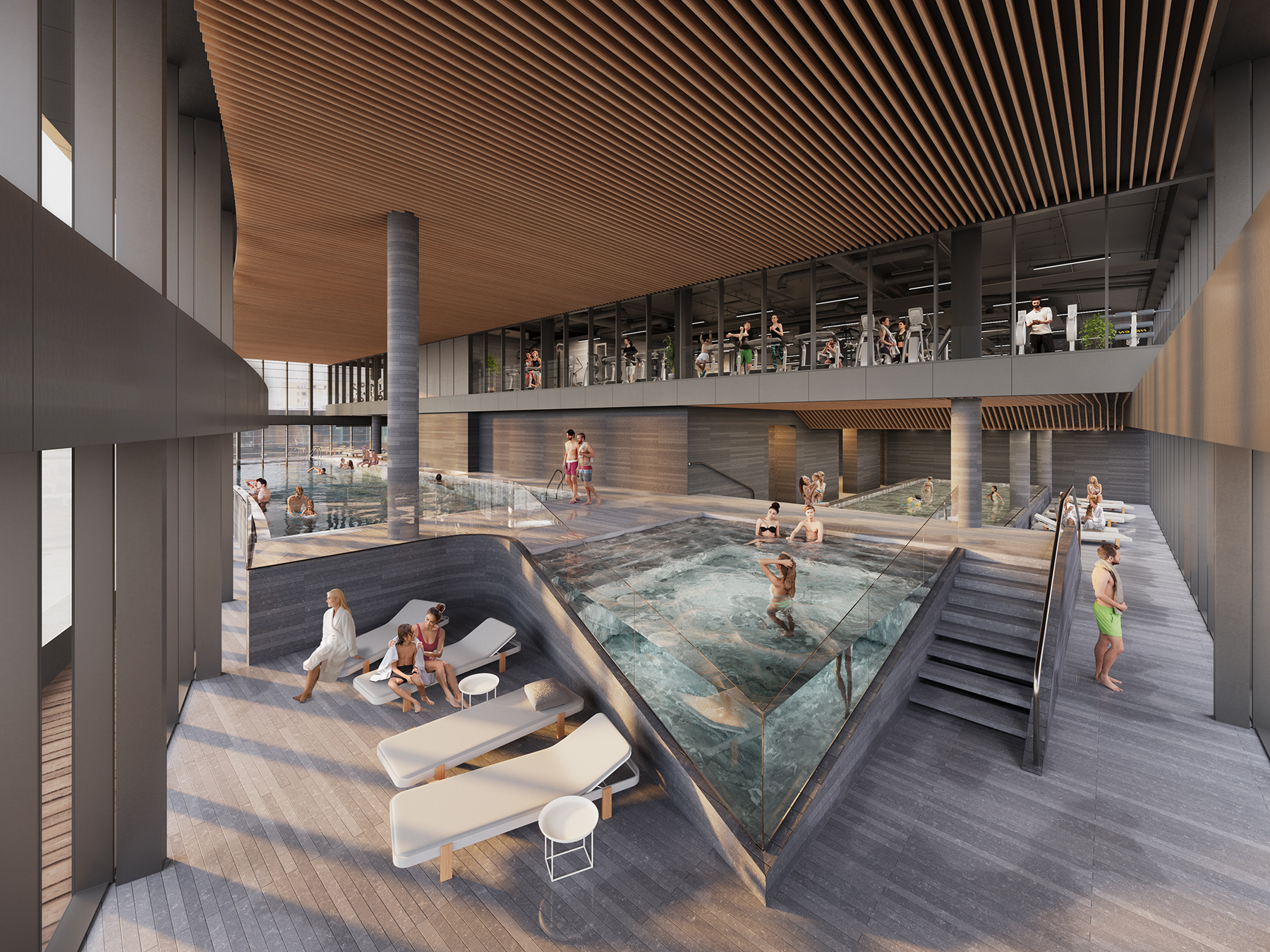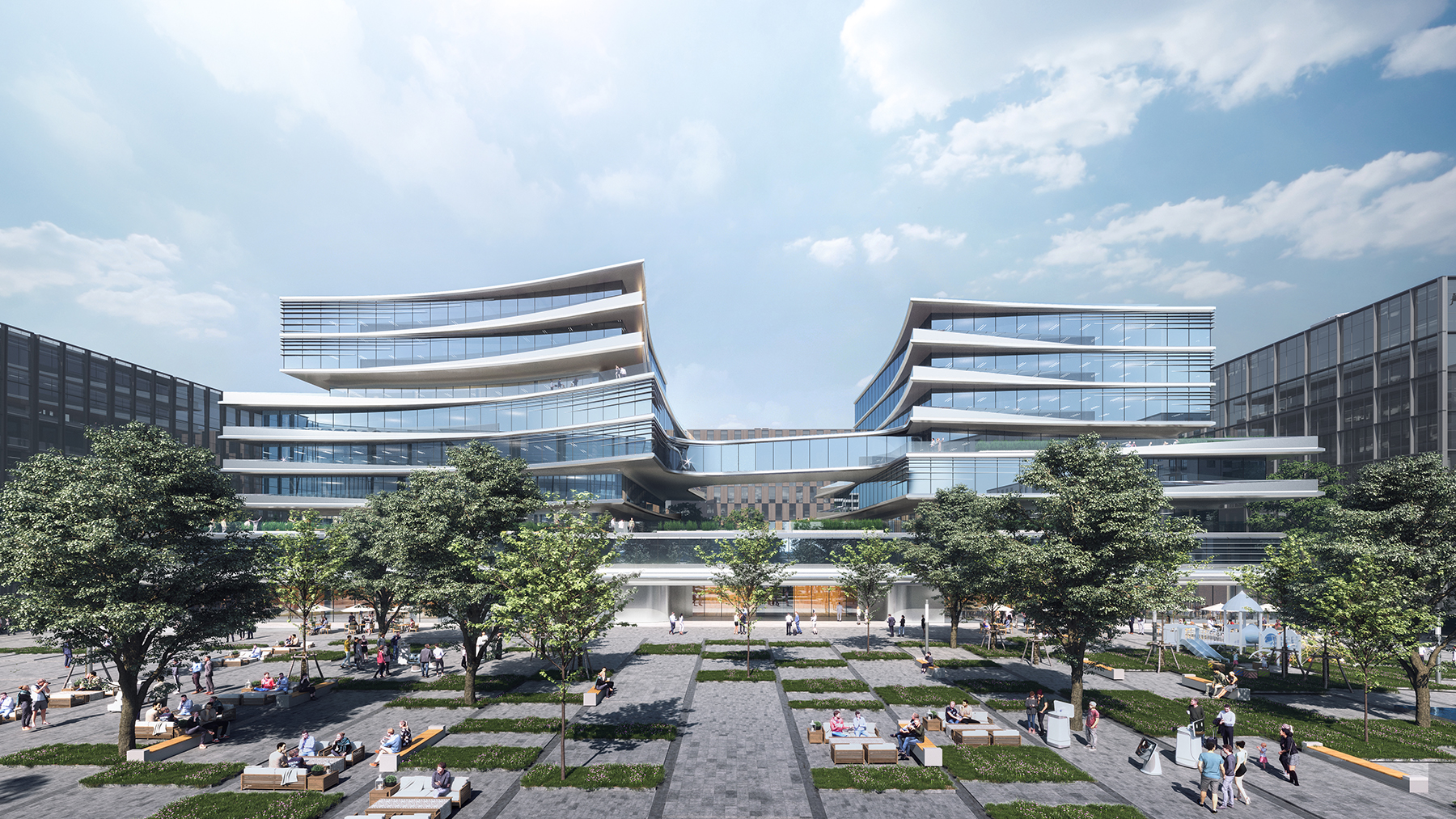By David Jen
Two low-rise towers will combine work and play in the Lithuanian capital of Vilnius, with a building permit issued by the city in May for the Business Stadium Central project.

Designed by London-based Zaha Hadid Architects, the project’s public spaces and amenities, combined with its middle-floor offices, will help realize the city’s plan to integrate work and living spaces in central Vilnius.
The 24,000 sq m Business Stadium design includes two towers — one eight stories high and the other nine — featuring glass facades and cantilevered balconies that look out toward the historic Gediminas Castle Tower across the Neris River.

Inside, the design will give way to a warmer timber-based palette.

The towers will join each other at street level via a courtyard atrium and two floors of public amenities as well as through a skybridge on the fifth level. These public spaces — aimed at nearby residents, office workers, and visitors — will provide cafes, restaurants, and shops, while the top floors will offer public swimming pools, steam rooms, and sun decks with panoramic views of the city’s historic Old Town.
“Our goal is to create the best and most attractive business centre in the country,” writes Arvydas Avulis, chair of project client Hanner, in press material from Zaha Hadid. “This project will become an architectural highlight of Vilnius, demonstrating the city’s uniqueness and ambition. Businesses will enjoy extremely high-quality office spaces together with sports, leisure, and event venues that will enrich the life of the community.”
The Vilnius city council in 2021 approved a new general plan aimed at guiding city development over the next 10-15 years. In response to more people moving into the city’s center, the plan tightened standards around building heights and architecture, setting height, density, and intensity parameters on a block-by-block basis within the city.
“Vilnius still feels the consequences of Soviet planning, when only housing was built in the western part of the city, while jobs were created in the centre and in industrial districts,” according to a press release from the city. “When Vilnius becomes a city of services, knowledge, and high technology, it is more convenient to live close to the workplace and to walk to it or to use public transport.”

The Business Stadium buildings will rely on a natural hybrid-ventilation system for most of the year that will reduce energy consumption, according to Zaha Hadid. Facade louvers and balconies will optimize solar heat gain in the winter while providing shade in the summer to further reduce energy loads.
And in the design phase, the team has minimized the amount of materials needed for the building, while the actual materials, such as timber for the interiors, will be sourced with delivery distances in mind.
When complete, Business Stadium Central will integrate “flexible workplaces encouraging interaction and collaboration together with extensive health and wellness facilities for use by everyone in Vilnius,” writes Zaha Hadid.
This article is published by Civil Engineering Online.



